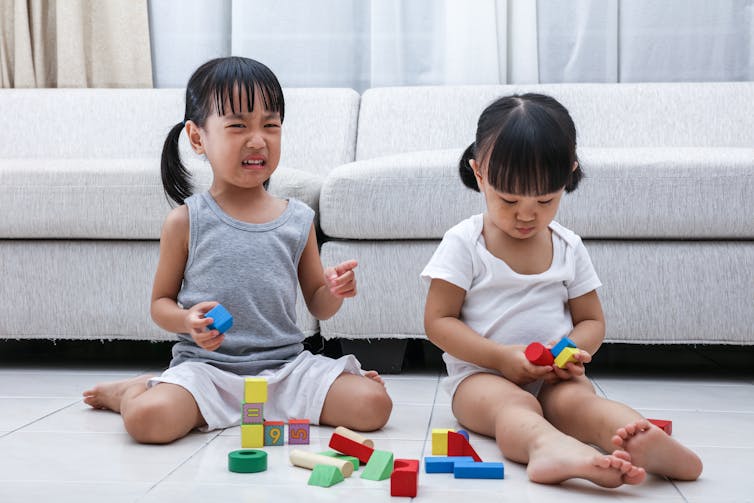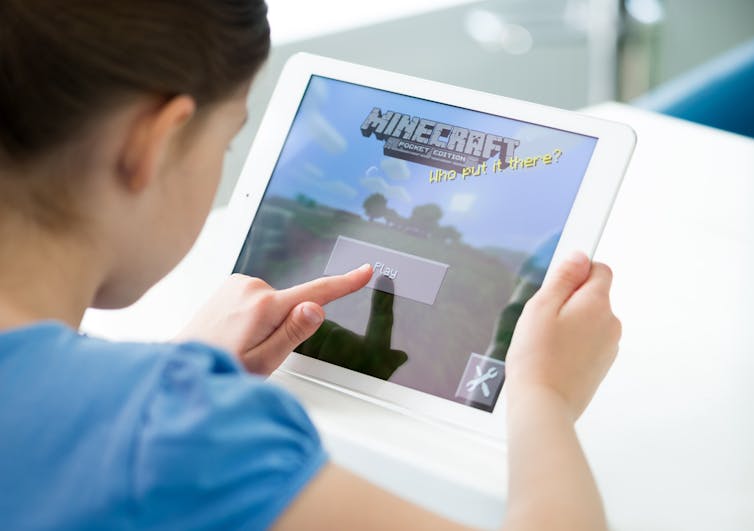Time out shouldn't be your go-to parenting tool but can be useful if it's well planned
- Written by Melanie Woodfield, Clinical Psychologist and Health Research Council Foxley Fellow, University of Auckland
Parenting young children is one of the most stressful times in a parent’s life. Toddlers and preschoolers are learning how to independently regulate their emotions. And parents are developing their ability to be both warm and firm – the ideal parenting combination.
It’s no wonder so many parents are uncertain about how to best respond to their child’s challenging behaviour.
Time out is a parenting strategy that is often misunderstood and misused, with a plethora of conflicting information online, often highlighting the potential harms.
Read more: Evidence-based parenting: how to deal with aggression, tantrums and defiance
Yet the evidence shows it can be effective for children aged two to eight years – when used occasionally, calmly, briefly and when the process is pre-planned and understood by both parent and child.
Even UCLA professor of psychiatry Dan Siegel, the author of No Drama Discipline who is widely believed to be anti-time out, supports the technique.
What’s the theory behind time out?
A parent’s attention is everything to a child. Whether this attention involves loving gazes or that glare they get at Grandma’s house, it’s all attention.
Any human behaviour that is reinforced or rewarded will usually increase in frequency. If you wear a particular pair of shoes, and these are admired or commented on by people you respect, you’ll probably wear them again.
Often when a child acts up, parents accidentally reward this by providing more attention: “I told you not to do that! Stop! Come on, you know not to do that to your sister …”
 Parents are more likely to intervene when something goes wrong than praise good behaviour.
KK Tan/Shutterstock
Parents are more likely to intervene when something goes wrong than praise good behaviour.
KK Tan/Shutterstock
Yet children may receive less attention for “positive” behaviours that warrant praise (“Great sharing with your sister”, “Thanks for asking nicely”).
Time out can turn this pattern of interaction on its head.
How do you do time out?
Time out involves the deliberate, brief and pre-arranged withdrawal of parent attention when the child hasn’t complied with a clear and reasonable instruction.
This withdrawal of attention should have been pre-planned, with the child and parent both knowing what’s happening ahead of time.
Parents need to first make sure their instruction is clear and developmentally appropriate. (“Please put the Lego in the box”). Give the child a chance to comply, perhaps count to five (internally).
Then repeat the instruction, calmly telling the child what the consequence will be. This isn’t a threat, it’s stating what will happen and giving the child another chance to comply – they may not have heard the first time. (“If you don’t put the Lego in the box you will need to go to the time out chair”.)
 You can expect a bit of push back, so be prepared.
Wendy Riseborough/Shutterstock
You can expect a bit of push back, so be prepared.
Wendy Riseborough/Shutterstock
Give the child another few seconds to comply after this warning. Then, calmly move them to the pre-arranged spot, which can be a chair or a cushion or similar.
Say something clear like, “stay on the chair until I say you can get off”. The time period should be three to five minutes for young children.
When they are reasonably calm, go over and say “you’re sitting quietly, are you ready to put the Lego in the box?”
If yes, they do it and the time out is over – time for re-connection!
If no, “stay on the chair until I say you can get off” and the time out starts again. The parent, not the child, decides when time out finishes.
Parents need a plan for what they’re going to do if the child gets off the chair, such as using the child’s bedroom as a “back up” time out spot. And both parent and child need to have talked about this ahead of time.
Similarly, if the child refuses to go to time out, decide ahead of time on the response. With children under about seven, parents can gently move them to the chair.
Children over about seven need another, hands-off approach such as loss of privileges like screen time until they have completed the time out.
 Older children who refuse to go to time out might lose their screen privileges.
Bloomicon/Shutterstock
Older children who refuse to go to time out might lose their screen privileges.
Bloomicon/Shutterstock
What not to do
If you’re thinking about using time out there are some important traps to avoid and situations where it’s not appropriate:
don’t use time out for children under two (or those who have a developmental level under this age) – the strongest evidence base is for children two to eight
don’t threaten time out and fail to follow through – this makes it less effective
keep things calm, fair and predictable, and limit time outs to three to five minutes. Prolonged time out is not necessary for learning
try to avoid statements that conflate judgements of the child and their behaviour. What they did (or didn’t do) is not OK, but the child isn’t “bad”. They’re loved and lovable. Statements like “you’re angry, I can’t be with you right now, get out of my sight” aren’t helpful
don’t overuse time out as a parenting strategy – it should only be used very occasionally. Parents should first opt for strategies that help children understand and work through their feelings, or redirect the child’s attention.
Read more: 'Making up games is more important than you think': why Bluey is a font of parenting wisdom
What’s going on with your child?
Children often push back when a limit is set. If they’re calmly told to sit on a time out chair, for example, it’s unlikely they’ll pleasantly thank their parent for the fair and reasonable consequence.
Instead, they’ll protest. Shouting, threatening, pleading (“but I was going to do it!”) and defiance are all possibilities.
It’s important to remain silent, even if what they say while they’re on the chair is rude, hurtful or humorous – again, your attention is likely to reinforce this, and it will escalate.
Don’t enter into any discussion about how fair or unfair the consequence was. The child needs to know ahead of time that the parent is going to stay silent until the time out is finished.
Read more: Reward or punishment: finding the best match for your child's personality
But once it’s over, have all the discussion in the world. You might say something like, “That felt really unfair to you – you wanted to finish the Lego and I asked you to clean up”.
This can serve several functions: the child feels understood by their parent, it validates their feelings (though not their actions), and models how to calmly articulate and express when something feels unfair.
It also invites the child to draw close for a cuddle or a time of closeness, and this is important after a time out. Learning happens when children are calm.
Some parents need extra help
Most children show age-appropriate (and developmentally normal) defiance. But some children may have long-running challenging behaviour that’s impacting on their own safety, or the family’s well-being.
 Some families have additional challenges and need external support.
Monkey Business Images/Shutterstock
Some families have additional challenges and need external support.
Monkey Business Images/Shutterstock
This may be due to the child’s developmental needs, temperament, experiences, or complex factors within their relationships with loved ones. Or perhaps their parent or caregiver is themselves experiencing depression, anxiety, or another factor that makes parenting more challenging.
In these situations, parents may need need the support of a professional or a structured parenting program such as Incredible Years, Triple P or Parent-Child Interaction Therapy. Reassuringly, my recent study suggests even where parents have a significant mental health issues, parent training programs can remain effective.
Parents and caregivers aren’t robots, rationally computing the best strategy to use in the moment and calmly dispensing a technique. How they think and feel – both generally and in the moment – impacts on their parenting decisions and effectiveness.
Thankfully, we don’t need to aim for perfection. We just need to be good enough.
Read more: Stop worrying about screen 'time'. It's your child’s screen experience that matters
Authors: Melanie Woodfield, Clinical Psychologist and Health Research Council Foxley Fellow, University of Auckland



















